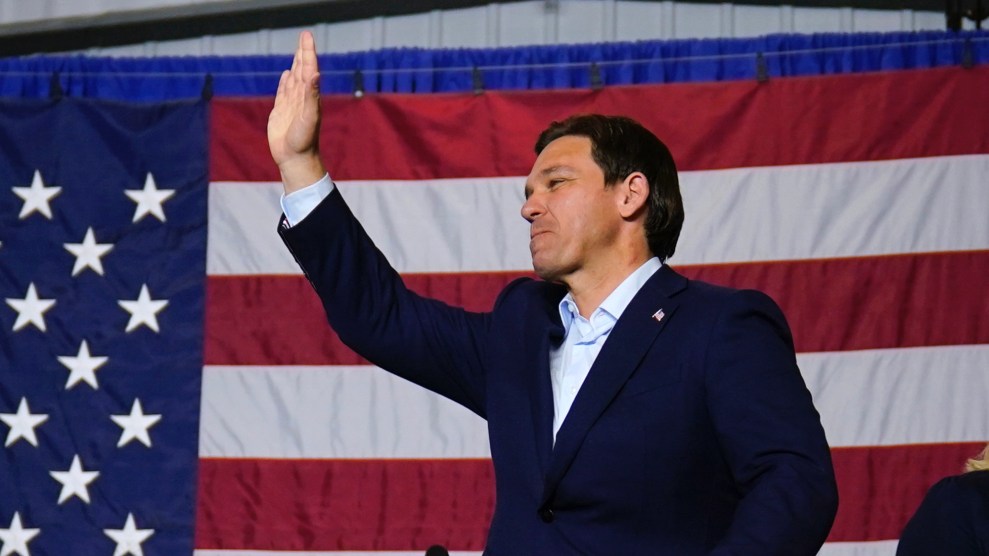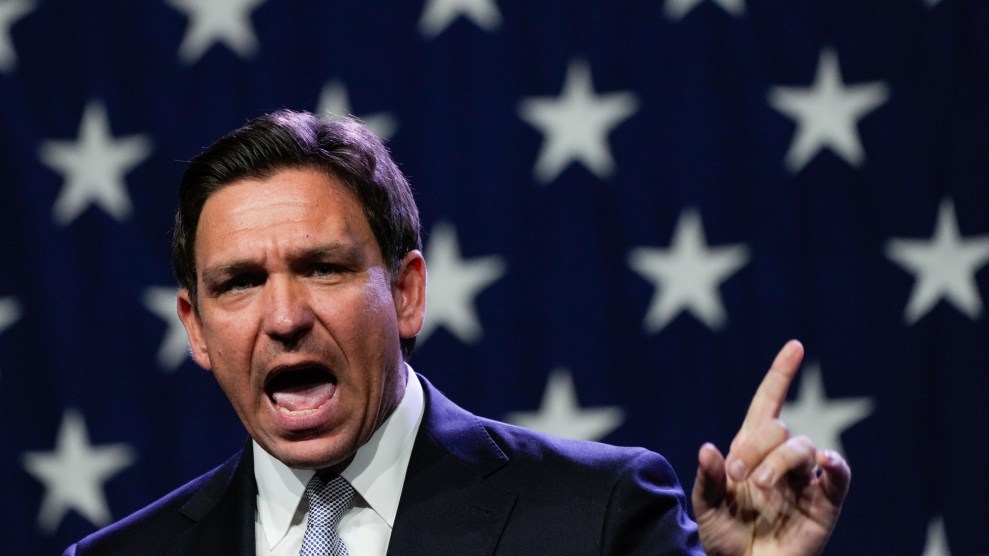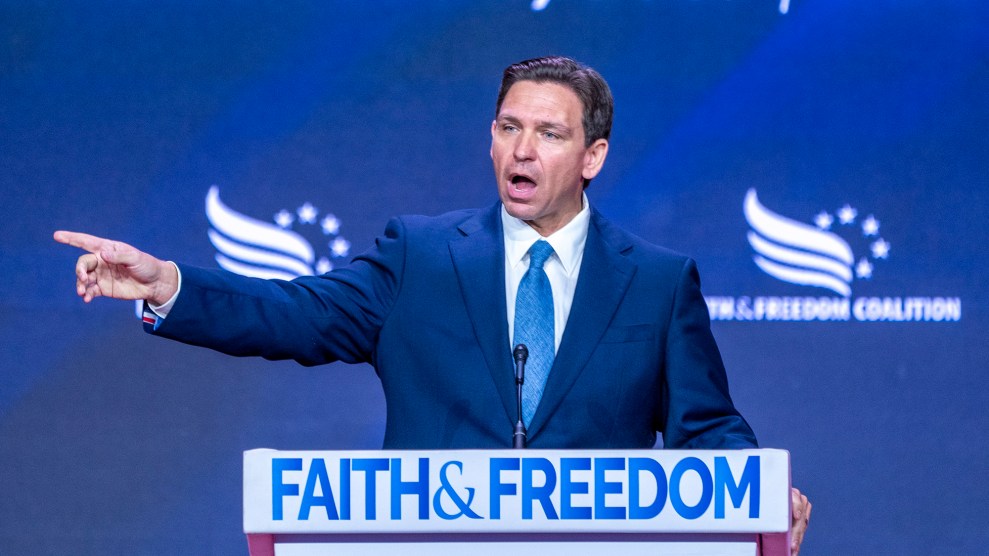
Ron DeSantis campaigns in Cedar Rapids, Iowa on August 6.Charlie Neibergall/AP
Florida Gov. Ron DeSantis took a break from his ailing presidential campaign on Wednesday to suspend Monique Worrell, an Orlando-based elected prosecutor. The move was unsurprising: Since winning the state’s top job in 2019, he has sought to make political hay by booting multiple Democrats from office, in contravention of the voters who put them there.
Worrell’s suspension is part of a mounting pile of evidence that a key aspect of DeSantis’ tenure is a disregard for democracy, alongside his desire and ability to govern Florida without accountability from other branches. That record is why his critics warn that he will rule as an autocrat if he manages to reach the White House.
DeSantis’ decision to remove Worrell demonstrates that he believes he can act with impunity when it comes to suspensions, even if they go beyond his powers as governor. And he is likely correct in this calculation. A year ago, DeSantis suspended Andrew Warren, Tampa’s elected prosecutor. Warren sued, and while a US district judge found his suspension unconstitutional, he declined to reinstate him on a technicality. Warren appealed up the federal ladder, and also asked Florida’s supreme court to put him back in office. Stacked with ultraconservative DeSantis appointees, it declined to intervene.
The clear message was that neither court system was likely to stand in his way should DeSantis choose to suspend more democratically-elected officials. And while the Florida Senate technically has the final word on a governor’s suspensions, there is little chance they would object; observers say the GOP-controlled legislature has capitulated to DeSantis’ will to an unprecedented degree.
The result is that DeSantis, at a moment he desperately needs to rehabilitate his national prospects, feels he can take another Democratic scalp without facing repercussion over an unconstitutional act. “If the governor can just remove an elected official from office, on a whim, without any legal basis, then it nullifies the meaning of democracy across our state,” Warren told me earlier this year. “It means that elections have no meaning.”
Warren believes his suspension was “a political stunt.” Indeed, DeSantis regularly brings it up in his stump speeches. Now he will be able to brag about taking down two Democratic prosecutors.
The Florida Constitution does allow governors to suspend elected officials, but only “for malfeasance, misfeasance, neglect of duty, drunkenness, incompetence, permanent inability to perform official duties, or commission of a felony.” In suspending Worrell, DeSantis claimed that she neglected her duty to prosecute violent crime, but the executive order announcing her suspension reads like a list of policy differences, and not something documenting any failure to do her job. Of course, acting tough on crime has long been a political tactic of both Democrats and Republicans, and it is one that DeSantis has heartily embraced.
DeSantis’ presidential campaign has failed to impress, with his poll numbers falling. This Tuesday, he replaced his campaign manager in a shakeup. Last month, he slashed staff to stanch financial bleeding. Perhaps the only way he has distinguished himself in the GOP primary is by, much like in his governorship, displaying a willingness to push the bounds of the law. In a legally questionable and never-before attempted move, DeSantis transferred money from his state reelection campaign to the super PAC supporting his presidential bid. The Campaign Legal Center, a watchdog group, filed a complaint with the Federal Election Commission alleging the move was illegal. But just as Florida’s other branches of government will not check DeSantis, neither will the FEC, which has long been deadlocked. DeSantis surely knows this, and feels free to act without consequence.
Across DeSantis’ record as governor is an accumulation of power unencumbered by accountability, and incompatible with democracy. His suspension of Worrell is no different.


















